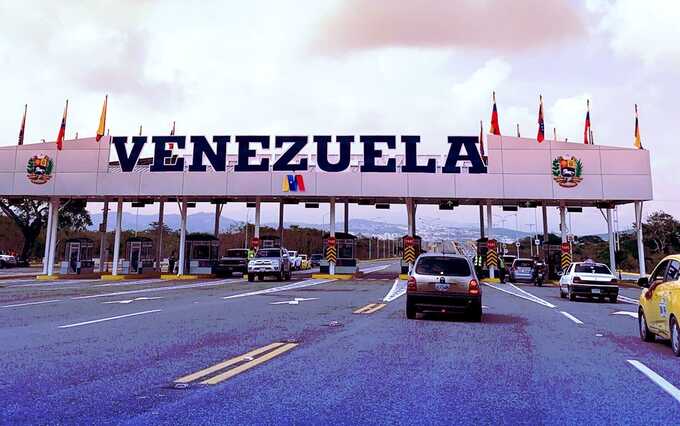Smuggling adapts to the reopening of the Colombia-Venezuela border
As darkness falls over Cúcuta, Colombia’s bustling border city, shadows provide cover for criminal networks. Each night, illegal dirt tracks connecting the city to Venezuela become highways for smuggling, with large quantities of goods slipping past law enforcement.
“While we sleep, countless things happen in the city. And yes, smuggling is one of them,” a local business leader told InSight Crime.
In February 2019, President Nicolás Maduro ordered the closure of the Colombia-Venezuela border, after a failed attempt by opposition groups to deliver humanitarian aid to Venezuela. The move fueled smuggling through the co-called “trochas,” turning them into vital corridors for illicit trade and migrant trafficking. The COVID-19 pandemic further entrenched these criminal economies.
The official reopening of the border on September 26, 2022 sparked hopes for a return to normalcy and the closure of the tracks. However, that has not materialized. Criminal groups continue to thrive on illicit trade, and to offset a slight dip in revenue, have ramped up their extortion efforts, increasingly targeting local communities.
Corruption, Sanctions, and the Business Imperative
Cargo vehicles cross the Simón Bolívar and Atanasio Girardot bridges, which span the Táchira River and connect Táchira state in Venezuela with Norte de Santander in Colombia. These routes are primarily used to transport goods bound for Venezuela. Meanwhile, smuggling persists along the tracks—on foot, by motorcycle, and even by vehicle—while authorities often turn a blind eye.
Before the closure, trade between the two countries peaked in 2008 at $7 billion annually. After the border reopened, business leaders anticipated reaching at least $2 billion in the first year. However, a regional business leader estimates the figure has not yet surpassed $1.2 billion.
While some businesses use the official crossings for accounting benefits, a significant barrier to normalizing trade is the pervasive distrust of Venezuelan authorities, driving many to rely on illegal routes.
“With the trochas, there’s just one payment, and the cargo is secure,” said Ronal Rodríguez, a researcher at Universidad del Rosario.
Further obstacles include checkpoint fees imposed on the Venezuelan side and financial complications stemming from sanctions against the country. These challenges impede the full development of cross-border trade.
Local networks continue to smuggle goods like food from Colombia into Venezuela, exploiting stark price disparities between the two countries. Milk, for example, purchased in Colombia for $0.90 per unit is transported through the clandestine tracks and sold in Venezuela for nearly twice the price, often without meeting basic hygiene standards. Similarly, smuggled potatoes are sold at lower prices, bypassing quality controls and posing serious health risks to Venezuelan consumers.
Armed Groups and the Decline of Smuggling Revenue
In recent years, the tracks along the Colombia-Venezuela border have been controlled by armed groups like the Colombian guerrilla group, the National Liberation Army (Ejército de Liberación Nacional – ELN), and transnational gangs like Venezuela’s Tren de Aragua. With the border now open, however, criminal dynamics have evolved, intensifying the strain on Cúcuta’s residents.
During the border closure, the tracks served as a steady revenue stream for armed groups, which extorted fees for goods and people using them. With the reopening and a partial reduction in smuggling, such groups have adapted, leaving a significant impact on Cúcuta.
The ELN, active on both sides of the border, has experienced minimal disruption. It continues to generate revenue by extorting transporters using the tracks and maintains income from other illicit activities, including drug trafficking, according to a local journalist.
In contrast, on Colombia’s side of the border, groups like Tren de Aragua, which relied heavily on extorting small traders, have been forced to reorganize to find new income streams. One of its strategies involves targeting businesses in Cúcuta, resulting in a surge of threatening phone calls to bars, restaurants, and car dealerships, demanding protection payments.
Since 2023, competition for control over these lucrative enterprises and other criminal economies, such as retail drug trafficking, has triggered a significant surge in violence across the city, marked by an alarming increase in grenade attacks.
Read more similar news:
Comments:
comments powered by Disqus


































